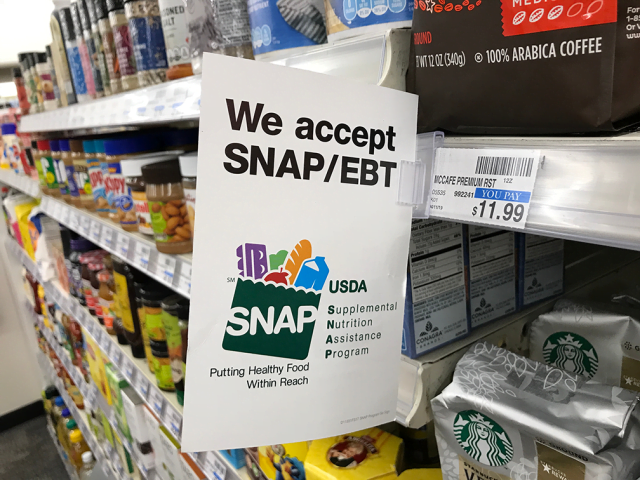
Food Security Better with Food Stamps than Cash Payments
The notion in policy circles that governments should provide in-kind benefits, rather than cash, is often framed as being impractical or even unfair. The proponents of cash payments argue that people should be able to choose how they spend their money.
A new paper presents the opposite side: Sometimes people are better off with in-kind benefits. The in-kind benefit in this study is food stamps, and the researchers detected increases in food insecurity when state governments decided to provide cash assistance instead of food stamps.
The motivation for this study is the 1974 introduction of the Supplemental Security Income (SSI) program, which paid cash directly to the low-income elderly and to people with disabilities. When Congress passed SSI, the federal food stamp program in its current form had been in place for more than a decade in many counties and was evolving into a national program.
But the SSI legislation for the first time permitted some states to give their eligible residents either food stamps or increase the amount of cash they receive every month from SSI, with a federal guarantee that on average beneficiaries would initially receive the equivalent financial support they’d previously gotten from food stamps and the federal-state programs that SSI replaced.
Predictably, food stamp use among elderly and disabled welfare beneficiaries dropped sharply, from 43 percent to 5.7 percent in cash-out states that chose to make their residents on SSI ineligible for food stamps. Food stamp use barely changed in the non-cash-out states.
The same year SSI passed, however, people in the cash-out states also became more likely to say they were not getting enough to eat. “Despite no overall change in benefit levels,” the researchers saw “significant reductions in food security.”
They also show what happened to SSI recipients in California after the state left the cash-out program many years later. On the assumption that food stamps improve people’s health, California’s experience gives some clues about how to get them into more residents’ hands. When the state terminated its cash-out program and started issuing food stamps again for SSI recipients in 2019 – much later than other states – it sparked an immediate burst of 134,000 new food stamp applications.
An analysis of the activity in each California county showed that the application rates were higher in counties that used a larger number of different methods – flyers, advertisements, social media, phone calls – to reach out to eligible SSI recipients. Application rates were also tied to having more accommodations at a county office such as wheel chair accessibility to make it easier for people with disabilities to apply.
The bottom line in all their findings: access to food benefits, rather than cash, matters for SSI recipients, the researchers said.
To read this study by Marianne Bitler, Amelia Hawkins, Lucie Schmidt, and Hilary Seligman, see “Cash vs. Food: How does Food Stamp Eligibility Affect Food Stamp Enrollment and Food and Health Outcomes of SSI Recipients?”
The research reported herein was derived in whole or in part from research activities performed pursuant to a grant from the U.S. Social Security Administration (SSA) funded as part of the Retirement and Disability Research Consortium. The opinions and conclusions expressed are solely those of the authors and do not represent the opinions or policy of SSA, any agency of the federal government, or Boston College. Neither the United States Government nor any agency thereof, nor any of their employees, make any warranty, express or implied, or assumes any legal liability or responsibility for the accuracy, completeness, or usefulness of the contents of this report. Reference herein to any specific commercial product, process or service by trade name, trademark, manufacturer, or otherwise does not necessarily constitute or imply endorsement, recommendation or favoring by the United States Government or any agency thereof.






